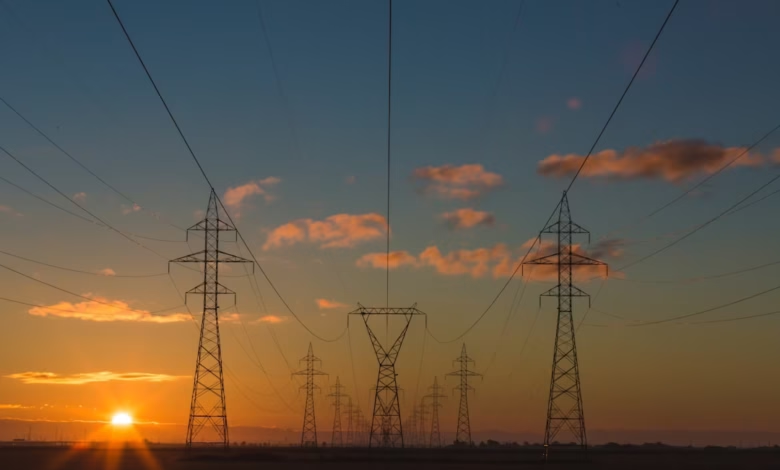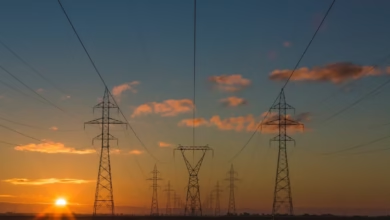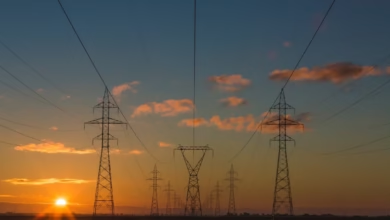Energy Security in the 21st Century: Harnessing Renewable Energy and Innovations for a Reliable Supply

In an era marked by climate change and shifting geopolitical landscapes, energy security has emerged as a critical concern for nations worldwide. Ensuring a stable and reliable energy supply is no longer just about meeting current demands; it involves navigating the complex interplay of various energy sources, policies, and technologies. As we transition from traditional fossil fuels to greener alternatives, the role of renewable energy has become increasingly significant in fortifying energy security. This article delves into the multifaceted approach required to achieve energy reliability, exploring the latest trends and innovations in renewable energy such as solar power, wind energy, and hydropower. We will also examine the delicate balance between fossil fuels and nuclear energy, discussing how energy policy can pave the way for a sustainable future. Furthermore, we will highlight the importance of energy storage and smart grids as essential components for enhancing energy efficiency and reliability. By understanding these dynamics, we can better prepare for the inevitable shifts in energy markets and ensure a robust energy transition that supports both economic growth and environmental sustainability.
- 1. The Role of Renewable Energy in Strengthening Energy Security: Trends and Innovations
- 2. Navigating Fossil Fuels and Nuclear Energy: Balancing Energy Policy for a Sustainable Future
- 3. Energy Storage and Smart Grids: Key Components for Reliable Energy Supply and Efficiency
1. The Role of Renewable Energy in Strengthening Energy Security: Trends and Innovations
The global shift towards renewable energy is becoming increasingly critical in strengthening energy security. As nations grapple with the intricacies of energy economics and the challenges posed by climate change, the adoption of renewable energy sources offers a promising path forward. Recent trends illustrate a growing reliance on solar power, wind energy, hydropower, and bioenergy, which collectively enhance energy independence and reduce vulnerability to fossil fuel supply disruptions.
The integration of renewables into energy markets is not merely an environmental imperative; it represents a strategic move towards energy security. Countries are investing heavily in energy innovations, such as smart grids, which optimize energy distribution and enable better management of energy storage systems. By utilizing advanced energy storage technologies, nations can ensure a stable supply even when production from renewable sources is variable.
Moreover, the energy transition from fossil fuels to green energy has been accelerated by innovations in hydrogen energy and carbon capture technologies. These advancements allow for cleaner energy production and provide mechanisms to mitigate the greenhouse gas emissions associated with traditional fossil fuel usage. As countries seek to enhance energy efficiency, the development of offshore energy resources is also gaining traction, offering substantial potential for sustainable energy generation.
As global energy trends continue to evolve, energy policy plays a pivotal role in guiding investments towards renewable energy projects. Governments are recognizing the importance of diversifying energy imports and exports to ensure a stable supply. This shift not only enhances energy security but also fosters energy independence by reducing reliance on imported fossil fuels.
In conclusion, the role of renewable energy in strengthening energy security is multifaceted and crucial. By prioritizing energy R&D and embracing innovative technologies, nations can build a resilient energy infrastructure that supports economic growth while addressing the pressing challenges of climate change. The future of energy security lies in a balanced energy portfolio that includes renewable sources, energy efficiency measures, and sustainable energy practices, paving the way for a more secure and sustainable energy landscape.
2. Navigating Fossil Fuels and Nuclear Energy: Balancing Energy Policy for a Sustainable Future
The journey towards energy security involves a careful navigation of various energy sources, particularly fossil fuels and nuclear energy. As countries strive to balance their energy policy for a sustainable future, understanding the role of these energy sources becomes crucial.
Fossil fuels have long been the backbone of global energy markets, providing a significant portion of the world's energy supply. However, as awareness of climate change intensifies, there is a pressing need to transition towards renewable energy sources. This transition includes the adoption of green energy technologies such as solar power, wind energy, and hydropower, which not only help reduce greenhouse gas emissions but also enhance energy efficiency.
Nuclear energy presents a compelling alternative in the quest for clean energy. With its capability to generate large amounts of thermal energy without the carbon footprint associated with fossil fuels, nuclear power can play a critical role in reducing reliance on fossil fuels. Furthermore, advancements in nuclear technology, including innovations in small modular reactors, offer the potential for safer and more efficient energy production.
To effectively balance the reliance on fossil fuels and nuclear energy, energy policy must focus on integrating these sources with emerging technologies in energy storage and smart grids. By enhancing energy storage capabilities, we can manage the intermittent nature of renewable energy sources, ensuring a stable and reliable energy supply. Smart grids facilitate this transition by optimizing energy distribution, incorporating distributed energy systems, and enhancing energy transportation efficiency.
Moreover, investments in energy R&D are essential to drive innovations that will further improve energy security. Research into carbon capture technologies can mitigate the environmental impact of fossil fuels, while advancements in hydrogen energy may provide a cleaner alternative that complements both fossil and nuclear energy.
As nations navigate their energy policies, they must also consider energy imports and exports, ensuring that their energy security is not compromised by global energy trends. By fostering collaboration in energy innovations and diversifying energy sources, countries can achieve a sustainable energy transition that meets the demands of the future while addressing climate change challenges.
In conclusion, balancing fossil fuels and nuclear energy within a comprehensive energy policy framework is crucial for achieving energy security. By prioritizing renewable energy, enhancing energy efficiency, and investing in innovative technologies, we can secure a stable and sustainable energy future for generations to come.
3. Energy Storage and Smart Grids: Key Components for Reliable Energy Supply and Efficiency
Energy storage and smart grids are pivotal components in ensuring a reliable energy supply while enhancing overall efficiency in the energy sector. As the world transitions toward renewable energy sources, such as solar power and wind energy, the need for effective energy storage solutions becomes increasingly critical. These technologies not only help in stabilizing the grid but also play a significant role in managing fluctuations in energy production that come with renewable sources.
Energy storage systems, including batteries and pumped hydro storage, enable the capture and retention of excess energy generated during peak production times. This stored energy can then be dispatched during periods of high demand or when renewable sources are not producing, thus improving energy security. For instance, integrating hydrogen energy technologies can provide a means to store energy for longer durations, making it an attractive option for balancing intermittent sources like solar and wind energy.
Smart grids enhance energy efficiency and reliability by utilizing advanced technologies and data analytics to optimize energy distribution. These grids allow for better management of energy resources, including fossil fuels and nuclear energy, ensuring that supply meets demand while minimizing waste. By incorporating distributed energy resources, such as residential solar panels and electric vehicles, smart grids facilitate a more dynamic energy market that empowers consumers and promotes energy innovations.
Moreover, the interplay between energy storage, smart grids, and energy policy is crucial for addressing global energy trends and climate change challenges. Governments and organizations are increasingly investing in energy R&D to explore new energy storage technologies and improve existing ones. These efforts not only target enhanced energy efficiency but also aim to reduce carbon emissions through the integration of green energy solutions and carbon capture technologies.
In conclusion, energy storage and smart grids are essential for the ongoing energy transition, providing the backbone for a stable and resilient energy supply. These innovations foster energy security by ensuring the reliability of energy imports and exports, facilitating the effective transportation of energy, and ultimately contributing to a more sustainable future.
In conclusion, ensuring energy security is a multifaceted challenge that requires a comprehensive approach to stabilize and diversify our energy supply. As we navigate the complexities of global energy trends, the integration of renewable energy sources—such as solar power, wind energy, and hydropower—plays a pivotal role in strengthening energy security. Innovations in energy storage and the implementation of smart grids are essential components in enhancing energy efficiency and reliability, allowing for a seamless transition within energy markets.
While fossil fuels and nuclear energy continue to be integral to our energy policy, a balanced strategy that incorporates green energy solutions will facilitate a more sustainable future. The energy transition demands significant investment in energy R&D, including advancements in carbon capture and hydrogen energy, to mitigate the impacts of climate change and secure a cleaner environment for generations to come.
As we move forward, it is crucial for policymakers and stakeholders to prioritize distributed energy solutions and explore offshore energy opportunities, ensuring that energy imports and exports are managed effectively. By fostering collaboration across sectors and embracing energy innovations, we can build a resilient energy framework that not only meets current demands but also anticipates future challenges. Ultimately, a commitment to energy security will empower nations to thrive in an ever-evolving global landscape, ensuring a stable and reliable energy supply for all.





